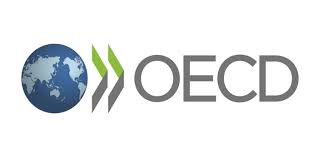What is the Organisation for Economic Co-operation and Development (OECD)?
26-08-2023
10:09 AM
1 min read

Overview:
The Gujarat government recently signed an agreement with the Organisation for Economic Co-operation and Development (OECD) to conduct the Programme for International Student Assessment (PISA) test for
Key facts about Organisation for Economic Co-operation and Development (OECD):
- It is an international organisation of 38 countries committed to democracy and the market economy.
- OECD members are typically democratic countries that support free-market economies.
- The OECD was established on Dec. 14, 1960, by 18 European nations, plus the United States and Canada.
- Headquarters: Paris, France.
- The stated goal of the Organisation for Economic Co-operation and Development (OECD) is to shape policies that foster prosperity, equality, opportunity and well-being for all.
- The OECD publishes economic reports, statistical databases, analyses, and forecasts on the outlook for economic growth worldwide.
- The organization also seeksto eliminate bribery and other financial crime worldwide.
- The OECD maintains a so-called "black list" of nations that are considered uncooperative tax havens.
- India is one of the many non-member economies with which the OECD has working relationships in addition to its member countries.

The Programme for International Student Assessment (PISA):
- It is an international assessment that measures 15-year-old students' reading, mathematics, and science literacy every 3 years.
- First conducted in 2000, the major domain of study rotates between reading, mathematics, and science in each cycle.
- PISA also includes measures of general or cross-curricular competencies, such as collaborative problem solving.
- PISA is coordinated by the OECD.
Q1) Which countries can become an OECD member?
Countries wishing to become OECD members must demonstrate a “readiness” and a “commitment” to adhere to essentially two fundamental requirements:
(i) democratic societies committed to rule of law and protection of human rights; and
(ii) open, transparent and free-market economies.
Source: State signs deal with OECD to hold PISA test for govt school students
